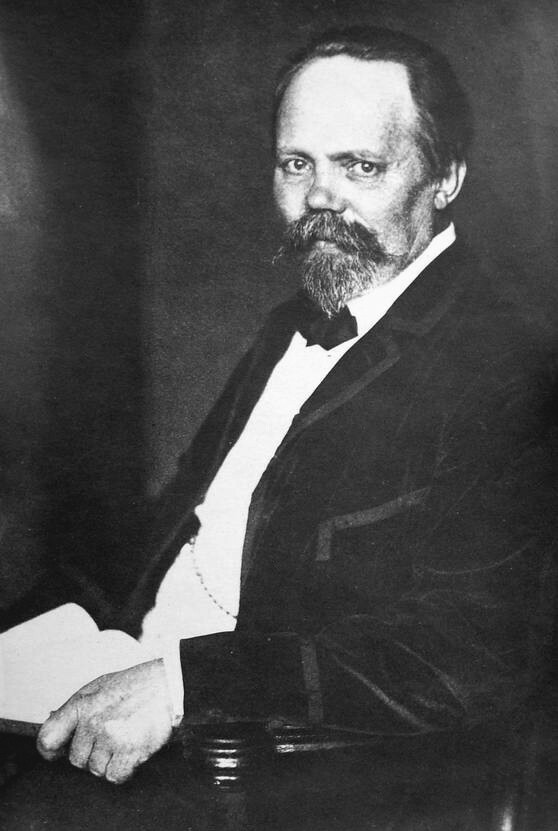
Engelbert Humperdinck (composer)
Engelbert Humperdinck (German: [ˈɛŋl̩bɛʁt ˈhʊmpɐdɪŋk]; 1 September 1854 – 27 September 1921) was a German composer. He is known widely for his opera Hansel and Gretel (1893).
For the British singer, see Engelbert Humperdinck (singer).
In 1896, Kaiser Wilhelm II made Humperdinck a Professor and he went to live at Boppard. Four years later, he went to Berlin, where he was appointed head of a Meister-Schule of composition. His students included Basque composer Andrés Isasi, Portuguese composer Luís de Freitas Branco and Kurt Weill.
Among Humperdinck's other stage works are
While composing those works, Humperdinck held various teaching positions of distinction. He also collaborated in the theater, providing incidental music for a number of Max Reinhardt's productions in Berlin: for example, Shakespeare's The Merchant of Venice in 1905.[3]
Although recognized as a disciple of Wagner rather than an innovator, Humperdinck was the first composer to use Sprechgesang—a vocal technique halfway between singing and speaking—in his melodrama Königskinder (1897).[1]
In 1914, Humperdinck is thought to have applied for the post of director of the Sydney Conservatorium of Music in Australia, but with the outbreak of World War I, it became unthinkable for a German to hold that position. Belgium's Henri Verbrugghen was selected for the job, as Belgium was an ally of the United Kingdom.[4] Also in 1914, Humperdinck signed the Manifesto of the Ninety-Three, declaring support for German military actions during early World War I.[5]
On 5 January 1912 Humperdinck suffered a severe stroke. Although he recovered, his left hand remained permanently paralyzed. He continued to compose, completing Gaudeamus with the help of his son, Wolfram, in 1918.
On 26 September 1921, Humperdinck attended a performance of Carl Maria von Weber's Der Freischütz in Neustrelitz, which was Wolfram's first effort as a stage director. He suffered a heart attack during the performance and died the next day, aged 67, from a second heart attack. The Berlin State Opera performed Hansel and Gretel in his memory a few weeks later.[1] Humperdinck was buried at the Stahnsdorf South-Western Cemetery near Berlin.
Legacy[edit]
For a list of Humperdinck's pupils, see this list.
In 1965, British singer Arnold Dorsey named himself after the composer.
The main belt asteroid 9913 Humperdinck, discovered in 1977, was named after the composer.[6]